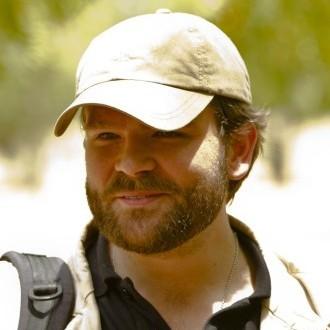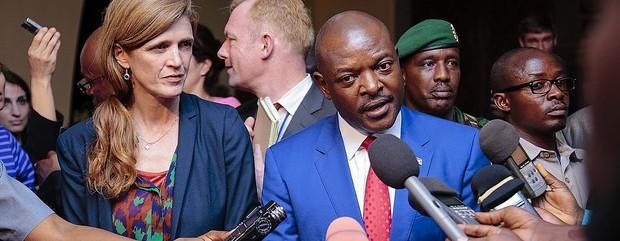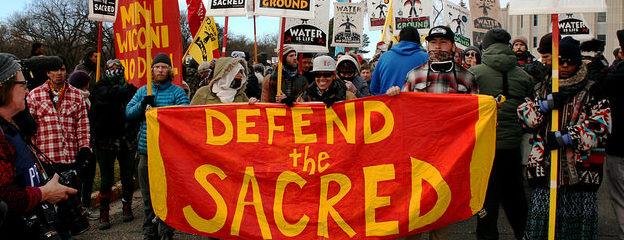Do journalists use double standards when reporting vulnerable subjects far from “˜home’? – By Matthew Le Riche

 A photograph of two South Sudanese children, with names listed directly below, sits adjacent the headline “South Sudan’s Boy Soldiers Swap Schoolbooks for Kalashnikovs”. This recent story by Bloomberg concerning child soldiers raises major ethical issues about putting vulnerable subjects at risk, and wider problems of double standards between ‘the West’ and Africa in reporting.
A photograph of two South Sudanese children, with names listed directly below, sits adjacent the headline “South Sudan’s Boy Soldiers Swap Schoolbooks for Kalashnikovs”. This recent story by Bloomberg concerning child soldiers raises major ethical issues about putting vulnerable subjects at risk, and wider problems of double standards between ‘the West’ and Africa in reporting.
There have always been criticisms about the way Western reporters treat subjects in Africa compared to how they might write or investigate stories ‘back home’. The debate around the politics of representation has a long history, going back to Susan Sontog’s work and that of Leni Riefenstahl about the Nuba of Sudan. This is an important conversation that clearly requires revisiting.
In the story cited above, the author, editor and media outlet have, for the sake of another story on child soldiers in South Sudan’s current crisis, placed two minors in full public view as members of a particular faction in the conflict, as well as being outspoken in their role as child soldiers in the government army.
The problems with this story should be blatant for all to see. First, the children photographed and detailed would, by any criteria, be considered vulnerable subjects, minors. Children such as these are not, under most ethical standards, journalistic or academic, considered able to grant consent, which any journalist is expected to secure before naming, photographing and reporting details of individuals.
To make matters worse, in this case the story is about the very sensitive subject of child soldiers, an issue that inspires defensive (and often violent) responses from armed groups. A story such as this could generate a retaliation upon the youths or their famililies, which demands that those treating the subject take special care. Most stories on the same issue use pseudonyms, will not show photos of the actual subjects or will simply not name the child soldiers in question. However, this is not the first story that has placed children at risk and nor is it likely to be the last.
If the story were about the role of two child subjects in a gang, or other sensitive activity, in most western countries the journalist and media outlet would likely face legal charges as there are ample laws protecting minors and vulnerable subjects. If some harm befell the subjects, the media outlet would also likely be on the hook for major damages – I am thus baffled by the fact that an outlet such as Bloomberg would be willing to take any such risk. Not for those in South Sudan it seems, as with many other areas of expatriate activity while in developing countries, very often people conduct themselves in a manner they would not think of at home.
All the more astonishing in this instance is that upon contacting the journalist, I was informed that the UNICEF child protection officer consulted on the story did not see any potential risk to the boys, whose precarious condition has now become just another by-line for a journalist and yet another story for the media outlet. It is unlikely that there will be any benefit for the two boys – the best we can hope is that they suffer no negative consequences.
I am amazed that the journalist, the editor, the company and event the UNICEF protection officer did not appreciate the severity of risk facing such vulnerable subjects. Nor do they seem to appreciate the basic ethical standards of care that go hand in hand in dealing with such serious subject matter.
Raising concern and awareness about the use of child soldiers is extremely important. But no single story can be worth putting vulnerable child subjects at any level of risk. There is just as much a duty of ‘do-no-harm’ for journalists, researchers and other writers as with medical professionals or humanitarian workers. In this widely accepted ethical principle, those trying to help should first endeavour that they are not adding to or causing any new harm or risk.
Reporting of this kind, which clearly breeches professional best parctice, shows double standards, and places vulnerable subjects at risk, giving autocratic governments ammunition in their efforts to censor. In South Sudan many journalists are already struggling with an increasingly difficult media environment and this story makes their work all the harder – it gives further justification for government to try and control the news media, not to mention making it more difficult for human rights monitors and journalists to cover the child soldier issue. I have already heard comments to this effect from government officials discussing this story.
I intend this contribution not as an attack on the media outlet or journalist in question but with the aim of sparking some debate; although it should be noted that after raising the issue with both, photos and names remain posted on the Bloomberg site.
There should be a vibrant ongoing debate regarding the standards and practice of media coverage of conflict and other sensitive situations. All journalists and news consumers should be engaged in this debate. Journalists and their editors should be challenged and engaged regarding their conduct, since there are significant obligations that come along with their profession. The virtue and right of the freedom of the press is not just a licence that allows reporting without professional and ethical obligations and with only headlines and readership in mind.
Dr. Matthew LeRiche is Visiting Assistant Professor of Political Science, Memorial University of Newfoundland @lerichematt







I was initially surprised and a little disappointed to see the picture as I didn’t accompany Kristin to Wau Shiluk. It is good practice not to do this. I did follow-up on the boys and the NGO that brought them and they were fine and not targeted in anyway. The boys were well known in the community and they are part of the local defense force for the community. This in no way condones the use of such pictures.
I am a journalist in Ethiopia.This is a very good article and I appreciate that the writer raised the critical ethical questions following the News posted on Bloomberg website.Yes you are right children should not be put at risk but you should have put in what way this new should have been reported.